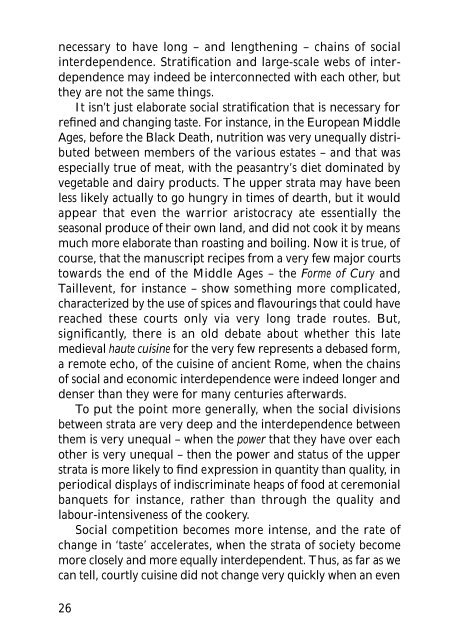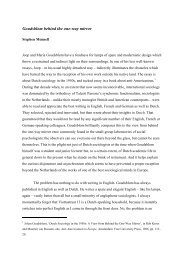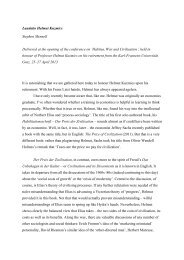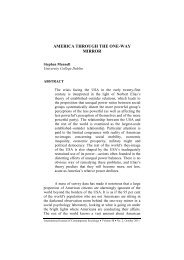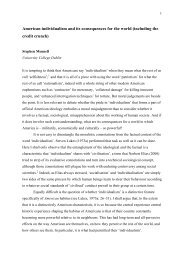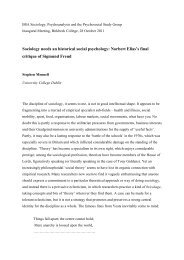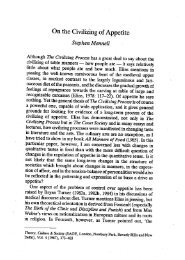Taste, Culture and History - Stephen Mennell
Taste, Culture and History - Stephen Mennell
Taste, Culture and History - Stephen Mennell
- No tags were found...
You also want an ePaper? Increase the reach of your titles
YUMPU automatically turns print PDFs into web optimized ePapers that Google loves.
necessary to have long – <strong>and</strong> lengthening – chains of socialinterdependence. Stratification <strong>and</strong> large-scale webs of interdependencemay indeed be interconnected with each other, butthey are not the same things.It isn’t just elaborate social stratification that is necessary forrefined <strong>and</strong> changing taste. For instance, in the European MiddleAges, before the Black Death, nutrition was very unequally distributedbetween members of the various estates – <strong>and</strong> that wasespecially true of meat, with the peasantry’s diet dominated byvegetable <strong>and</strong> dairy products. The upper strata may have beenless likely actually to go hungry in times of dearth, but it wouldappear that even the warrior aristocracy ate essentially theseasonal produce of their own l<strong>and</strong>, <strong>and</strong> did not cook it by meansmuch more elaborate than roasting <strong>and</strong> boiling. Now it is true, ofcourse, that the manuscript recipes from a very few major courtstowards the end of the Middle Ages – the Forme of Cury <strong>and</strong>Taillevent, for instance – show something more complicated,characterized by the use of spices <strong>and</strong> flavourings that could havereached these courts only via very long trade routes. But,significantly, there is an old debate about whether this latemedieval haute cuisine for the very few represents a debased form,a remote echo, of the cuisine of ancient Rome, when the chainsof social <strong>and</strong> economic interdependence were indeed longer <strong>and</strong>denser than they were for many centuries afterwards.To put the point more generally, when the social divisionsbetween strata are very deep <strong>and</strong> the interdependence betweenthem is very unequal – when the power that they have over eachother is very unequal – then the power <strong>and</strong> status of the upperstrata is more likely to find expression in quantity than quality, inperiodical displays of indiscriminate heaps of food at ceremonialbanquets for instance, rather than through the quality <strong>and</strong>labour-intensiveness of the cookery.Social competition becomes more intense, <strong>and</strong> the rate ofchange in ‘taste’ accelerates, when the strata of society becomemore closely <strong>and</strong> more equally interdependent. Thus, as far as wecan tell, courtly cuisine did not change very quickly when an even26


